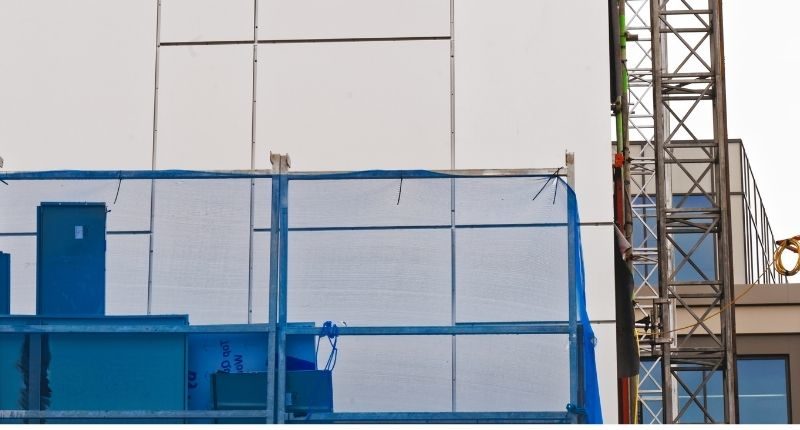
- The program was announced on Wednesday
- Includes a 50% rebate for up to $20K spent on testing combustible cladding
- Fears some buildings could lose their insurance
The ACT division of the Strata Community Association (SCA) has welcomed the Territory government’s recent announcement of the Public Cladding Scheme, labelling it a “good start”.
However, it has addressed three critical areas where the program falls short.
Rebecca Vasserotti, the Minister for Sustainable Building and Construction, announced on Wednesday the Private Building Cladding Scheme. Under the program, 50% of the costs associated with testing cladding on apartment buildings will be covered up to $20,000.

The second phase will involve offering concessional loans of affected buildings to replace cladding, although details have not been released.
About 90 private buildings are believed to be affected by combustible cladding with 23 government buildings already included in the cladding scheme for public buildings.
SCA (ACT) President Shelley Mulherin is encouraged by the announcement especially given the ACT is behind other states and territories in implementing similar programs.
“Since the beginning of the year we have been closely working with the ACT Government on these issues and we’re heartened to hear that they have listened to us and to the strata sector more broadly,” said Ms Mulherin.
“We have consistently said that a scheme that makes money available for testing and repairing cladding is a bare minimum.”
Shelley Mulherin, CCA (ACT) President
Three major issues
Ms Mulherin has highlighted three major issues with the program.
Firstly, she is disappointed with the $20,000 cap for testing reimbursement, which is only available as a rebate, describing it as “a little short of industry expectations”.
“This type of building analysis and consultation is not cheap; it adds up very quickly and often owners corporations do not have the means to stump up the cash upfront,” she said
Secondly, she said retrospectivity had not been addressed for the rebate.
“Without it, the government is effectively punishing those owner corporations who have been proactive already and gone out and paid to have their building [tested] for combustible cladding prior to today’s announcement.
Thirdly, what she described as the “thorniest point” for the government to address, is insurance for buildings identified as having combustible cladding.
“Insurers in the ACT are extremely reticent to insure buildings where flammable cladding has been identified,” explained Ms Mulherin.
“What do owners corporations do once they have used the government finance for testing, identified an issue, disclosed to their insurance and had their insurance revoked or invalidated?”
“The government needs to immediately and urgently engage with the insurance industry to tackle this very serious issue,” she concluded.







